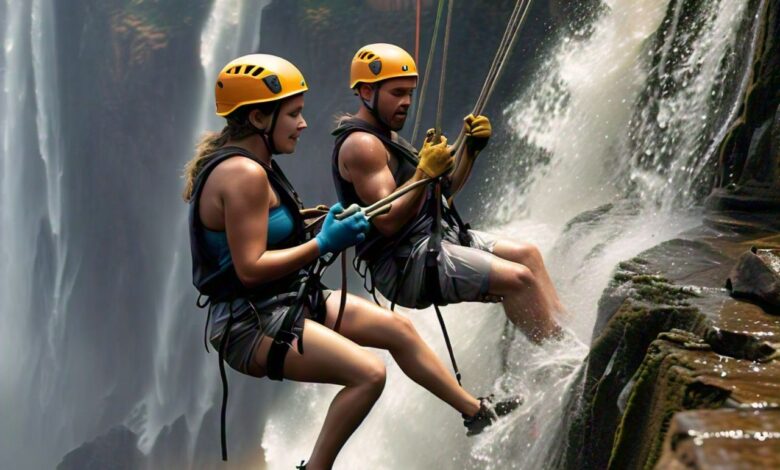Adventure Tourism in Zimbabwe: Private Sector Operators Leading the Way

Adventure tourism in Zimbabwe is a low hanging fruit as the nation’s various destinations offer this. Locally it is driven largely by private sector operators who are innovating and diversifying their offerings to cater to growing demand from international tourists seeking unique experiences in Africa’s southernmost country. Furthermore, the private sector is also catering to the tourism needs of regional and local tourists.
Additionally, Wikipedia defines adventure tourism is a type of tourism, involving exploration or travel with a certain degree of risk (real or perceived), and which may require special skills and physical exertion. Zimbabwe’s tourism industry is facing challenges, including economic instability and competition from neighbouring countries. However, private sector operators are capitalising on the country’s natural beauty and rich cultural heritage to develop innovative adventure tourism products that are attracting visitors from around the world.
Diverse Range of Activities
From hiking and wildlife safaris to whitewater rafting and bungee jumping, Zimbabwe offers a wide range of adventure activities that cater to different interests and skill levels. Private sector operators are continually expanding their offerings to meet the evolving demands of adventurous travellers.
Also, one notable trend is the growth of ecotourism initiatives. Companies like African Bush Camps are developing sustainable tourism projects that allow visitors to experience Zimbabwe’s pristine wilderness areas while supporting conservation efforts. These programs combine adventure activities with educational experiences about local flora and fauna.
Innovation in Tourism Products
Furthermore, private sector operators are pushing boundaries in Zimbabwean tourism. They are doing this by creating unique experiences that blend traditional activities with modern twists. For instance, companies are offering luxury camping safaris. These combine game drives with gourmet meals prepared over open fires under starry night skies.
Additionally, another innovative trend is the development of cultural immersion tours. Operators are working closely with local communities to create authentic experiences that allow visitors to engage with Zimbabwean culture firsthand. These tours often involve homestays, traditional cooking classes and participation in local festivals and ceremonies.
Infrastructure Development
Despite challenges faced by the broader economy, private sector investment in tourism infrastructure continues to grow. New lodges and campsites are being developed in remote areas, improving accessibility to previously inaccessible regions for tourists.
Private sector operators investing in technology to enhance the visitor experience will help boost tourism in Zimbabwe. The implementation of mobile apps and digital platforms to provide real-time information about activities, weather conditions and safety protocols may motivate would be tourists to travel. Moreover, this would improve tourism receipts and contribute to the GDP.
Government Support
While private sector operators are driving innovation in Zimbabwean adventure tourism, government support remains crucial. Recent policy changes aimed at simplifying visa requirements and streamlining business registration processes have made it easier for entrepreneurs to start and operate tourism businesses.
Additionally, the government has launched initiatives to promote domestic tourism. This could potentially boost demand for adventure activities during off-peak seasons.
Challenges Ahead
Despite the positive trends, the adventure tourism industry in Zimbabwe still faces several challenges. Economic instability continues to affect consumer spending power and competition from neighbouring countries remains a concern. Also, high cost of tourism activities compared to those on the region can deter would be tourists.
Climate change poses another significant threat, with rising temperatures and changing rainfall patterns affecting the country’s natural habitats and ecosystems. Therefore, operators will need to adapt their offerings and strategies to mitigate these impacts.
Conclusion
As Zimbabwe’s adventure tourism industry continues to evolve, private sector operators remain at the forefront of innovation and diversification. By leveraging the country’s natural beauty, rich culture and entrepreneurial spirit, these operators are positioning Zimbabwe as a premier destination for adventure-seekers from around the world, the region and locally.
With continued investment in infrastructure, product development and sustainability, the future of adventure tourism in Zimbabwe looks bright. As the industry grows, it presents opportunities for economic development. It also preserves Zimbabwe’s unique landscapes and cultural heritage for generations to come.




